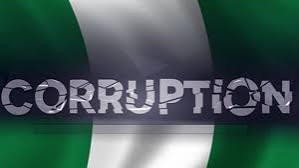A groundbreaking National Bureau of Statistics (NBS) survey has exposed the staggering extent of corruption in Nigeria, revealing that citizens paid a whopping N721 billion in cash bribes to public officials in 2023 alone. This staggering figure represents 0.35% of the country’s Gross Domestic Product (GDP).
The survey, titled “Corruption in Nigeria: Patterns and Trends,” offers a comprehensive insight into the nation’s corruption landscape. Key findings include:
– Over 95% of all bribes paid in 2023 were in monetary form, highlighting the dominant role of cash in corrupt transactions.
– Public officials’ offices and the street accounted for approximately 35% and 36% of all paid bribes, respectively, indicating a high incidence of corruption in these settings.
– A significant 11% of bribes were paid in respondents’ own homes, while 7% were paid in public buildings such as restaurants, malls, or stations, underscoring the pervasive nature of corruption.
– The survey revealed that healthcare professionals and public utility officers were the most frequently bribed, with 30% and 24% of citizens reporting bribery incidents, respectively. Police officers came third, with a contact rate of 20%.
Alarmingly, the NBS report also revealed a decline in Nigerians’ confidence in the government’s anti-corruption efforts. While in 2019, over half of all citizens believed the government was effective in fighting corruption, this figure plummeted to less than a third in 2023. This downward trend is a clear indication of the need for urgent action to address the nation’s corruption woes.
Furthermore, private sector bribery increased significantly from 6.0% of citizens who had at least one contact with a private sector actor in 2019 to 14% in 2023, highlighting the growing corruption challenge in the private sector.
The NBS survey serves as a clarion call for policymakers, anti-corruption agencies, and citizens to join forces in combating corruption. The report’s findings offer valuable insights for developing effective strategies to tackle this pervasive issue and promote a culture of transparency and accountability in Nigeria.

